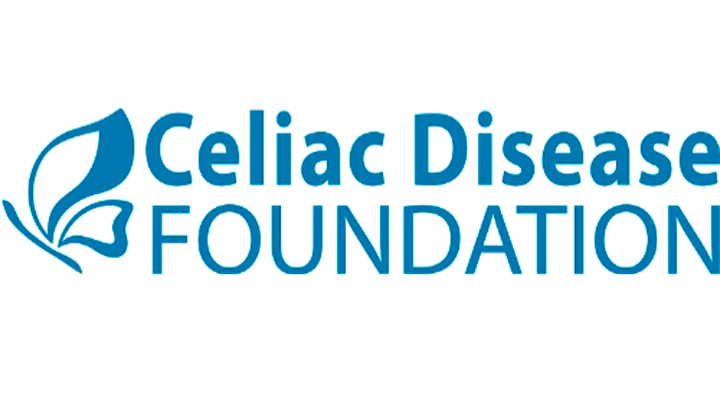Help others help you. Wear a medical alert ID bracelet or necklace engraved with important information for emergency responders and healthcare providers
Centers for Disease Control & Prevention

Medical IDs for Celiac Disease
The confidence to live with celiac disease
Celiac disease is more than just an allergy to gluten or wheat. The National Institute of Diabetes and Digestive and Kidney Diseases defines celiac disease as a chronic immune and digestive disorder. It is one of the world’s most prevalent genetic autoimmune diseases, affecting an estimated 3 million Americans – 70-80% of whom are undiagnosed.
Wearing a celiac disease bracelet could save your life in a medical emergency. Celiac medical bracelets let emergency responders know that you or a loved one has celiac disease. When first responders and medical providers are treating you they will know not to give you any medications that contain gluten.
How MedicAlert protects those living with celiac disease
One thing you shouldn’t worry about is what could happen if there’s an emergency. MedicAlert’s protection plans offer benefits that extend beyond the ID, providing safety and peace of mind for people living with celiac disease.

24/7 Emergency Response
Our team provides first responders the information they need to provide fast, accurate care.

Digital Health Profile
All your vital information, all in one place for you and your caregiver.

Emergency Contact Notification
In an emergency, we connect families so that no one is alone in a crisis.

Patient Instructions
Share the information that’s important to your care, such as use of rescue medications or contraindication for tests like MRIs.
Pair a medical ID for celiac disease with the protection plan that’s right for you.
What is celiac disease?
Celiac disease is more than just an allergy to gluten or wheat. The National Institute of Diabetes and Digestive and Kidney Diseases defines celiac disease as a chronic immune and digestive disorder. It is of the world’s most prevalent genetic autoimmune diseases, affecting an estimated 3 million Americans – 70-80% of whom are undiagnosed.
Celiac disease causes the body to attack its own small intestine. With repeated exposure to gluten, the lining of the small intestine is damaged, so that a person becomes unable to absorb the nutrients they need from food. This can cause permanent damage to the small intestine and other serious long-term health conditions.
Who is at risk for celiac disease?
While the exact cause of celiac disease isn’t fully understood, it is genetic, meaning it runs in families. According to the Celiac Disease Foundation, people who have an immediate family member with celiac disease have a one in 10 chance of developing it themselves. The condition can develop at any point in a person’s life.
It’s estimated that around 1% of the world’s population has this immune system and digestive disorder, according to the Celiac Disease Foundation. Having celiac disease can increase your risk for other autoimmune disorders, such as Addison’s disease or multiple sclerosis. The risk of multiple autoimmune disorders increases the older a person is when first diagnosed with celiac disease.
Celiac disease also increases a person’s risk of small bowel cancer and coronary artery disease. The Celiac Disease Foundation reports that people with the disorder have twice the risk of coronary artery disease as those without it and four times the risk of cancer.
What are the symptoms of celiac disease?
Adults with celiac disease are likely to have the following symptoms:
- Weight loss
- Gas and bloating
- Diarrhea or constipation
- Nausea/vomiting
- Skin rash
- Softened bones
- Fatigue and headaches
- Joint pain
- Anemia
In children, digestive symptoms, such as nausea, vomiting and diarrhea, are common signs of celiac disease. Since they can’t absorb all the nutrients they need from food, children with celiac might have failure to thrive, delayed puberty or be smaller than average for their age.
Source: MAYO Clinic
How can you manage celiac disease?
There’s no cure for celiac disease; and no specific celiac disease medication. In fact, people with celiac disease usually must avoid common medications, as they can contain gluten. If you have celiac disease, it’s important to discuss the ingredients in any medicines you plan to take with a pharmacist or doctor to verify that they don’t contain gluten.
The only way to manage celiac disease is to adhere to a fully gluten-free diet for the rest of your life. A dietitian who specializes in working with patients with celiac disease can help you put together an eating plan that eliminates gluten-containing foods while providing the appropriate amount of nutrition. And it’s crucial to carefully read food labels to find if gluten is an ingredient in prepared foods.
People who have trouble absorbing nutrients from food due to damage to the small intestine might need to take vitamin and mineral supplements or receive injections of certain minerals and vitamins to ensure their nutritional needs are met.
While there aren’t medicines to treat or cure celiac disease, your physician might prescribe medications to help ease symptoms or discomfort. Steroids can reduce inflammation in the small intestine, helping your symptoms improve.
As with any medical condition, you should consult your doctor to learn how to manage your condition.
What to engrave on your MedicAlert medical ID for celiac disease:
MedicAlert offers free custom engraving on all our medical ID products. The engraving on your blood clots medical ID should include any critical medical information that can protect and save your life if you are in an accident or have a medical emergency, for example:
- Celiac disease
- NO GLUTEN
- Allergies
- Other health conditions
- Medications you’re taking
- Any medical information that needs to be communicated to first responders

Sample engraving. Consult our team if you need help engraving your medical ID for celiac disease.
Living with celiac disease
For some people, eating a gluten-free diet is a health trend. For others, avoiding gluten can have a serious impact on their health. People who have celiac disease have an immune response when they eat anything with gluten in it. For that reason, they need to avoid wheat and other gluten-containing foods for life.
If you or someone in your family has celiac disease, wearing a celiac disease bracelet or other style of medical ID can protect you when you’re in an accident or experience a medical emergency.
Where is gluten found?
Gluten is a type of protein found in wheat, rye, barley and some other grains. It helps foods hold their shape and plays a role in binding ingredients together. Gluten plays a pivotal role in bread making, as it gives loaves structure.
The protein isn’t only found in grain-based foods like bread, cookies and cakes. It’s often added to prepared or bottled foods where you wouldn’t expect it. For example, it’s sometimes found in soy sauce, salad dressings and pasta sauces.
In some cases, foods that don’t naturally contain gluten can become contaminated with it if they are grown or produced near wheat products. Oats don’t contain gluten but are often grown next to rye or wheat fields, for example. Some processed foods that don’t contain gluten are made on machinery that handles gluten-containing foods.
Non-food products might also contain gluten. For instance, it can be added to some cosmetic products, toothpaste and certain medications.

The Celiac Disease Foundation’s mission is to help create a world without celiac disease. Through research, education advocacy, they seek to accelerate treatments and ultimately find a cure.
How a medical ID for celiac disease combined with MedicAlert Membership provides protection
- We’re your voice: If you can’t speak for yourself due to an accident or other medical emergency, your celiac disease bracelet will speak for you – informing others about your condition and any medications you’re taking.
- 24/7 emergency protection: In an emergency, the MedicAlert team will relay all of your critical medical information to first responders, no matter where or when your emergency happens.
- Always connected: You should never be alone in an emergency. That’s why MedicAlert will reach out to your designated contacts if you are unable to do so.
- Live with peace of mind and confidence: MedicAlert will be there for you every step of the way. You’ll have the confidence and freedom to live your life with celiac disease, knowing we’ve got you covered.
DISCLAIMER: THIS WEBSITE DOES NOT PROVIDE MEDICAL ADVICE. The information in this article is presented for educational purposes only and is not intended as a substitute for professional medical advice, diagnosis and treatment. Always seek the advice of a physician or other qualified healthcare provider for any questions you may have regarding a medical condition or treatment.







